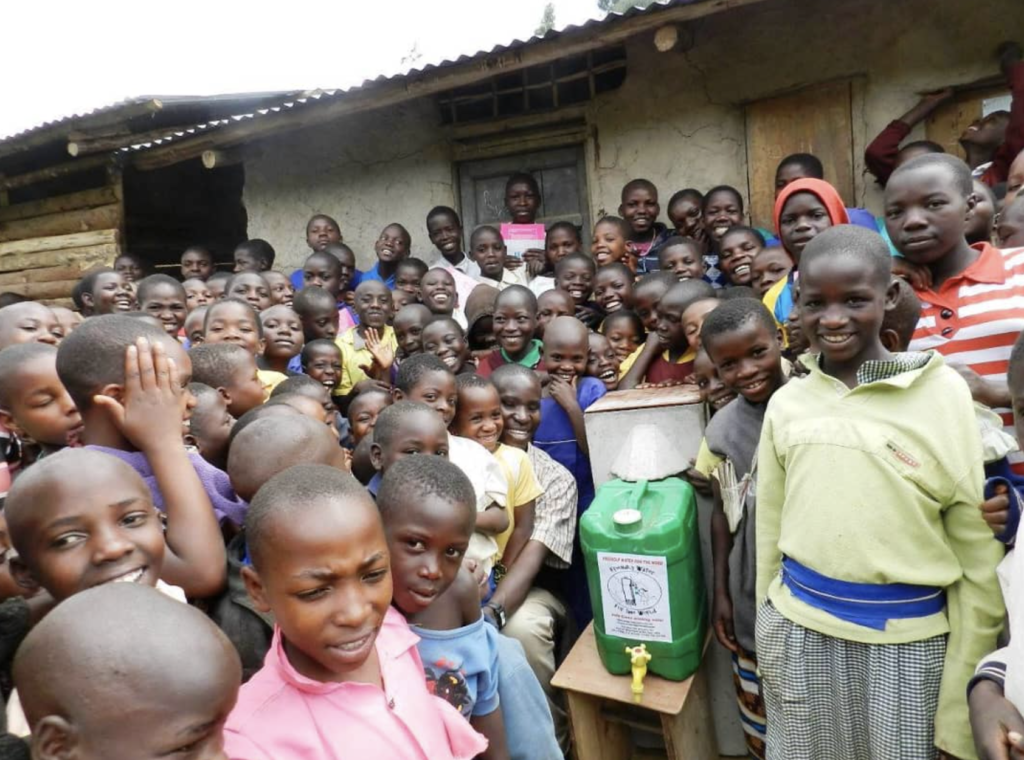
Julius Katembe, the founder of the Kigezi Orphans Home, contacted me in early 2014 with a problem. He and his friends had decided to gather up orphans in the Kigezi area, and find a way to house, feed, and, if possible, educate them.
He thought there would be, perhaps, 50 of them. But he ended up with 400, crowded into what was then a crude wooden barracks.
But that wasn’t the problem he was contacting me about. The problem was water. They didn’t have access to any clean water whatsoever. The kids were drinking highly contaminated water, and were often sick (sometimes critically) with dysentery and typhoid. They were also at risk for even more serious diseases like cholera and hepatitis A.
At the time, Friendly Water for the World was a young organization, with very little money. Still, I put out word to our contact in Uganda, Richard Kyambadde, to see if there was anything to do. And I had exactly $100, sent to us by a couple in Australia.
Richard was a very young man, who pleaded with us repeatedly to be trained in building BioSand Water Filters. Finally, hearing we were doing a training, he took a bus, arrived a day early, and because he had no place to stay and no money, ended up sleeping on the ground outside the training facility.
So Richard, who lives in Mityana, just west of Kampala the capital, fabricated two BioSand Filters, and loaded them – each weighing 260 pounds – together with the necessary clean gravel and sand, and a bus which took more than nine hours to reach Kigezi. He installed the two Filters, instructed people on their use, and taught the kids some very basic lessons in sanitation and hygiene.
Health improvements were immediate, and long-lasting. Funds that would otherwise have gone to paying for medical expenses for the kids could now go toward building a much better facility for housing the children.
But there was another problem. While Kigezi now had a way to ensure that the water they had was safe to drink, children still had to walk long distances to their water source. (And with climate change, that is getting worse virtually everywhere.) With the assistance of a grant from Lush Cosmetics, Richard was able to return, this time with a team, to build two rainwater catchment systems to capture and store water right onsite. They labored for about 10 days, and the catchments now ameliorate or eliminate the “long walk for water”, so the kids can use their time in school or at play.
It has been gratifying to see an entire U.S. support group grow up around the Kigezi Orphans Home. The children have done well in school, with many of them passing on to higher grades of learning. Most importantly of all, major threats to the kids’ health have been eliminated, making Kigezi Orphans Homes a place where they can learn and grow,
And I have been privileged to be a part of it.
David H. Albert, Co-Founder, and Board member, of Friendly Water for the World

